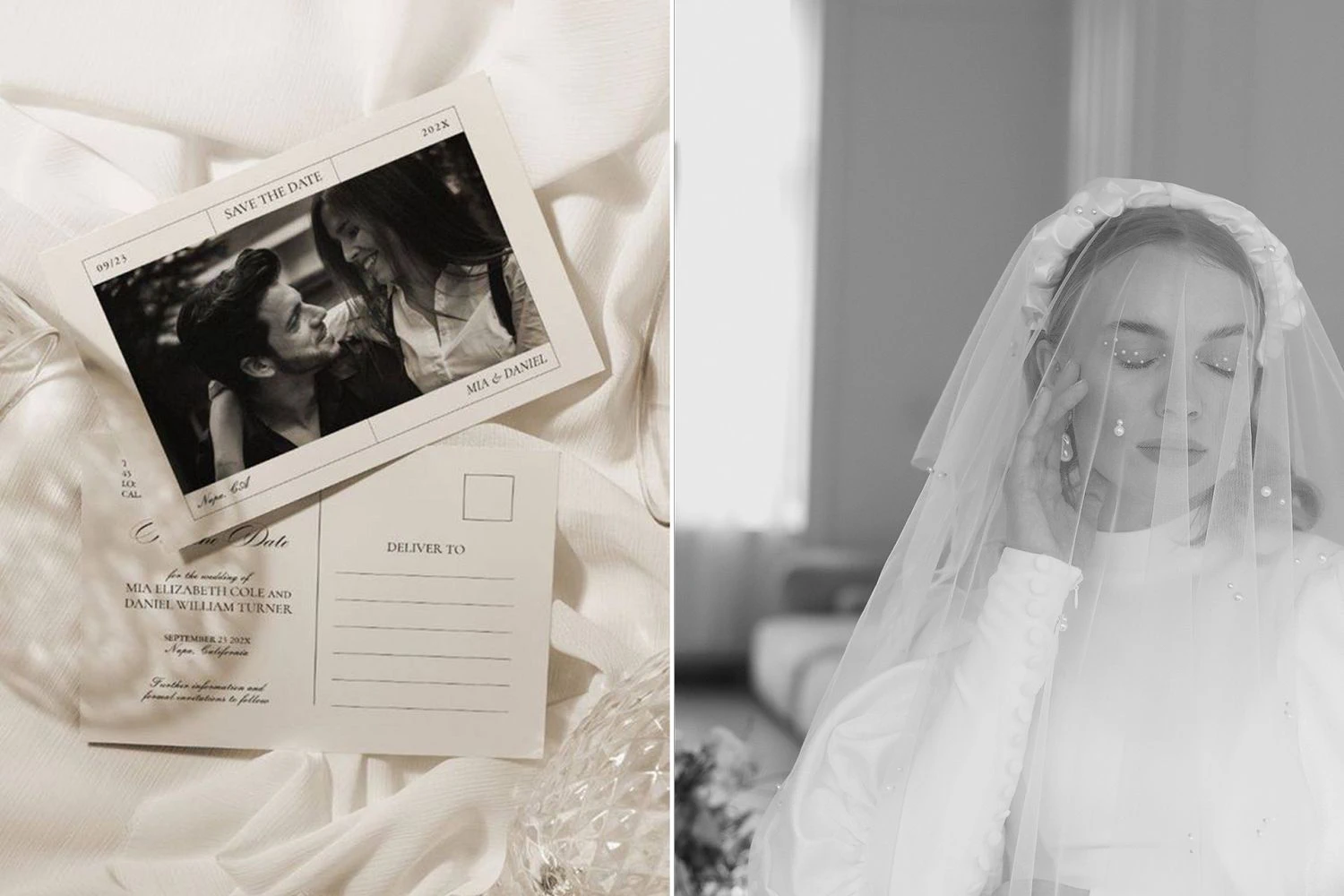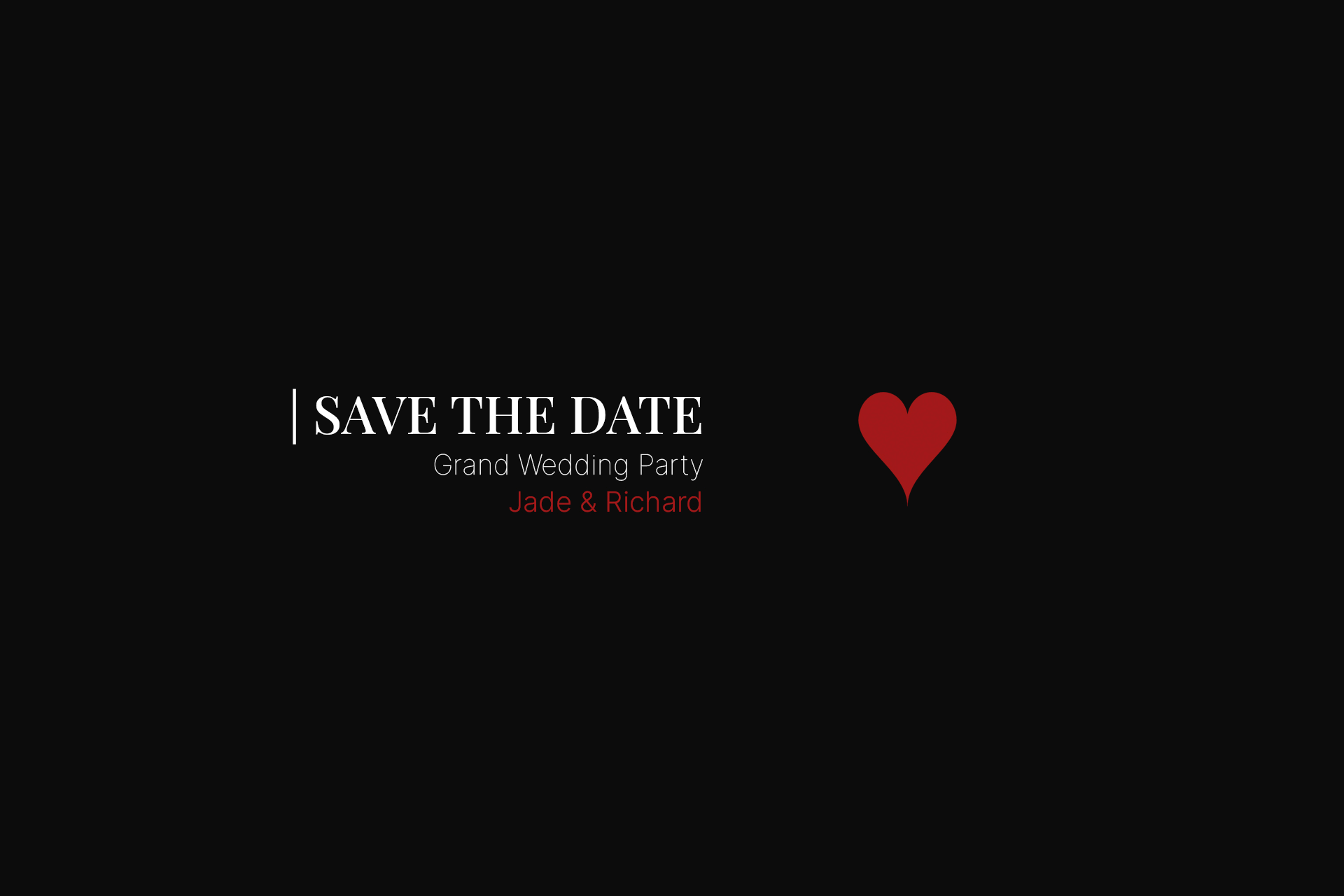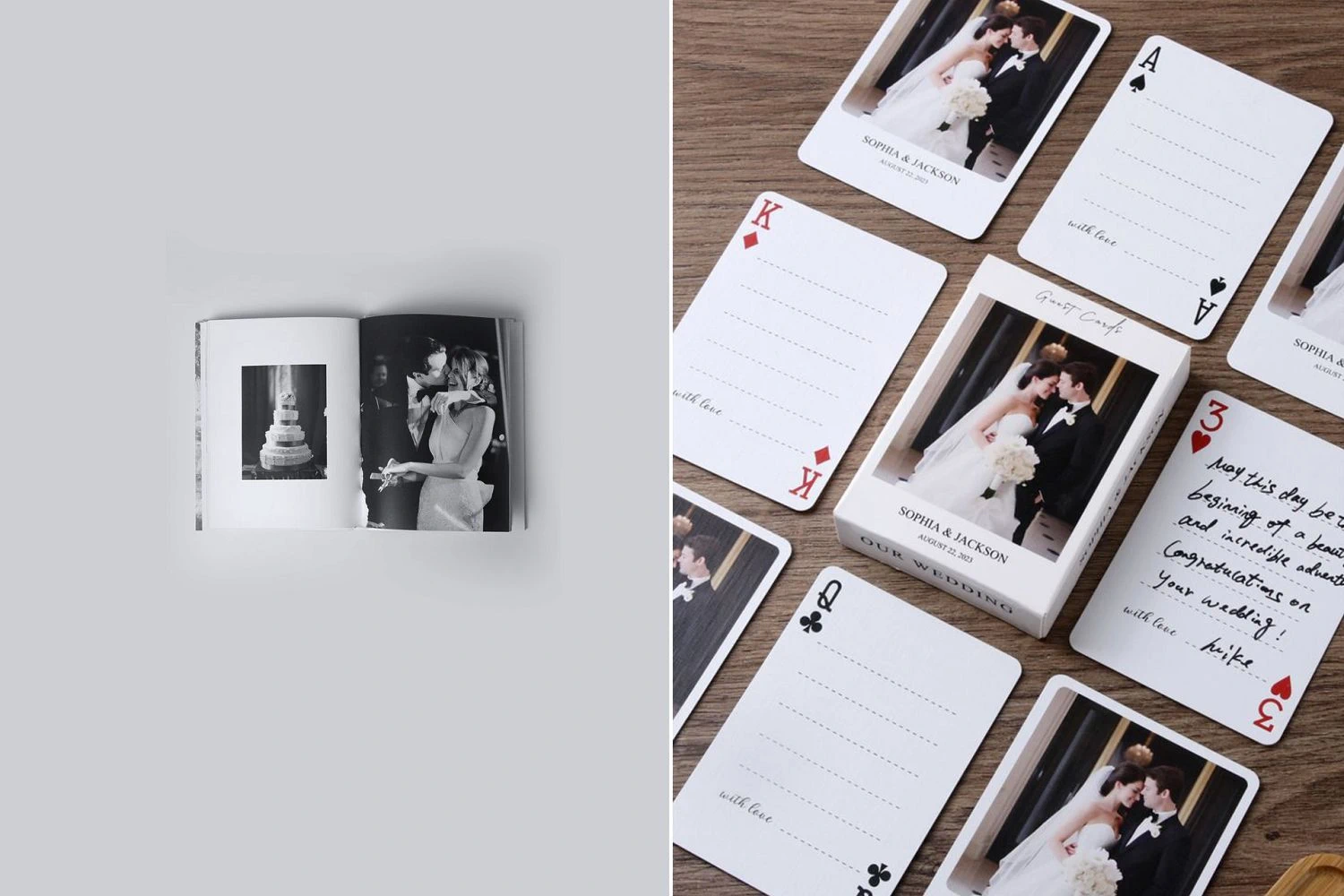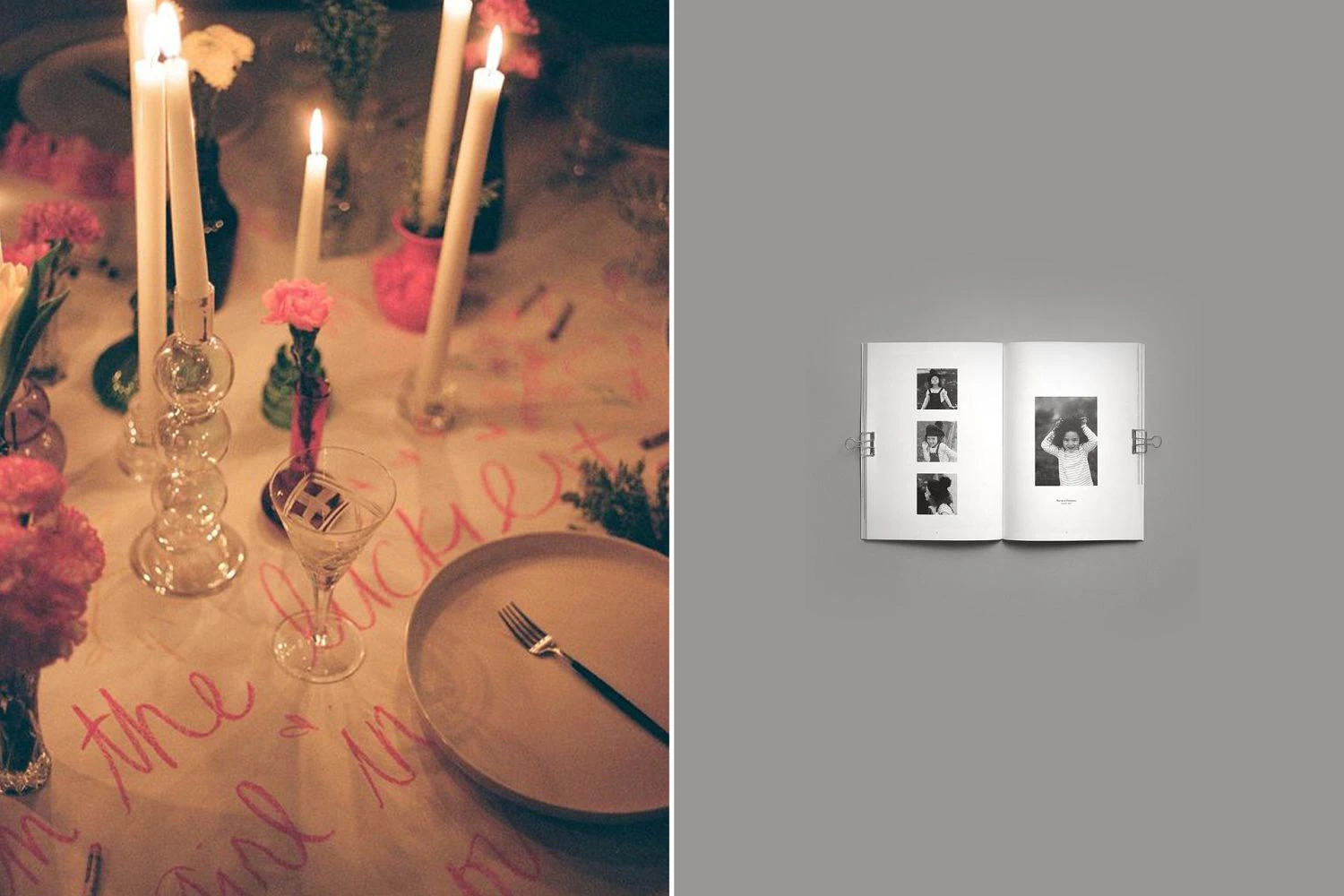The way we plan and experience weddings has evolved with the advent of modern technologies. We're taking a closer look at the innovative technologies transforming the wedding industry.
Incorporating modern technologies in wedding planning
Using modern technologies in wedding planning offers an efficient approach, significantly streamlining the planning process and improving communication and engagement between the included parties.
Digital wedding planning tools provide a structured and organized way to manage all aspects of wedding preparation. Different platforms offer comprehensive solutions for every aspect of wedding planning, from handling guest lists and RSVPs to checklists and vendor bookings.
In addition, budget management apps help couples keep track of expenses to stay within their financial limits. They also allow to scheduling of wedding vendor payments to ensure everyone involved is paid on time. While task management tools break down the planning into manageable tasks with deadlines, reducing stress and improving productivity, eco-friendly digital invitations and RSVP services streamline the invitation process and reduce paper waste.
In addition to planning tools, interactive wedding apps advance communication with guests. These apps provide a central location for all wedding-related information, like schedules, maps, and travel details. The interactive features ensure guests remain connected and engaged before, during, and after the event.

There are also personalized wedding apps that offer a bespoke experience. These apps allow couples to create customized websites with unique designs, themes, and content. These platforms include features such as photo galleries, digital guest books, and personalized stories.
A wedding website has found its way into modern weddings, and, currently, almost every wedding has one. It serves not just as a hub for managing logistics but as an integral part of the guest experience. By carefully crafting a website that mirrors the wedding's style and theme, you can offer an alluring preview of the festivities. To achieve that, start with a wedding website design that echoes your wedding's colours, fonts, and overall aesthetic. This visual harmony sets the mood and familiarizes guests with the celebration's vibe.
Personal touches, like stories about your relationship, details about the wedding party, or photos from your engagement, add layers of intimacy. To initiate the guests’ engagement, include interactive sections like a guestbook where visitors can leave personal messages or a forum for song requests to make the musical playlist more inclusive.
These features encourage guest interaction and make them feel more involved in the event. But after the event, transform the website into a digital keepsake. Enable guests to upload their photos and share their memories, creating a collective and comprehensive album that captures your special day from multiple perspectives.

Recently, AI wedding planning assistants become more and more popular as they leverage artificial intelligence to offer personalized recommendations and streamline the planning process, saving time and reducing stress. AI wedding planning tools suggest vendors, venues, and services that align with the couple’s preferences and budget, simplifying decision-making. AI-driven features provide personalized checklists, timelines, and budget tracking, ensuring all aspects of planning are covered efficiently. By automating tasks and offering tailored advice, AI assistants significantly reduce the workload and stress associated with wedding planning.
The incorporation of these modern technologies into wedding planning offers several advantages. Most importantly, digital tools enhance organization by providing structured ways to manage every detail. Additionally, interactive and personalized apps improve communication and engagement with guests, while AI assistants and digital tools save time and help couples stay within budget by streamlining tasks and providing personalized recommendations. Moreover, there are already many tools and platforms couples and wedding planners use, like shared documents and group communication apps that ensure spreadsheets and information can be accessed and edited by multiple users.

To save time, many couples already schedule virtual consultations with their wedding planner and other vendors. This is especially handy if planning a destination wedding. Not to mention that online inspiration boards, digital invitations, and online planning tools are not only easy to use but also contribute to a more sustainable, eco-friendly approach.
Electronic wedding guest management
Electronic wedding guest management includes a range of activities, from sending invitations and tracking RSVPs to organizing seating arrangements and communicating with guests. The primary goal of electronic guest management is to simplify and enhance the efficiency of these tasks.
It starts with virtual wedding invitations, also known as digital or e-invites, which are electronic invitations sent via email, social media, or wedding websites instead of traditional paper invitations. These invitations provide a modern, efficient, and more environmentally friendly way to invite guests to a wedding. There are a wide range of templates and designs available that can be customized. Moreover, virtual invitations can include multimedia elements such as videos, animations, music, and interactive graphics, making them more engaging.
What makes them extra handy is that they can include direct links to the couple's wedding website, where guests can find additional information such as venue details, interactive maps, schedules, accommodation options, and registries. To ease the finalization of the guest list, virtual wedding invitations often come with integrated RSVP management tools. It means that, when using online wedding RSVPs, guests can respond directly through the invitation link.

Additionally, automated reminders can be sent to guests who have not yet responded, helping ensure a timely and accurate guest list. Furthermore, some apps offer interactive seating chart tools that allow couples to arrange tables and assign seats digitally. This visual representation makes it easier to organize seating and make adjustments according to received RSVP information.
One of the most beneficial features of virtual invitations is that they are eco-friendly and cost-effective. Eco-friendly digital wedding invitations significantly reduce paper waste and the carbon footprint associated with printing and mailing physical invitations. Eliminating printing, postage, and delivery costs makes virtual invitations a more budget-friendly option.
In short, electronic wedding guest management automates many manual processes, saving time and reducing the potential for errors; centralizes all guest-related information, making it easily accessible and manageable; ensures that all information is up-to-date and instantly accessible to both the couple and their vendors; and facilitates better communication with guests through automated reminders and updates.
The biggest trends – wedding invitation videos and audio guest books
As we’ve already discussed, wedding preparations are becoming increasingly innovative, with technology playing a central role. Thus, it is no surprise that among the current trends are wedding invitation videos and audio guest books for weddings.

Moving beyond traditional paper invites, couples are now opting for wedding invitation videos. This serves as a dynamic and engaging way to announce their upcoming nuptials. These videos can range from simple animations with basic details to elaborate mini-films featuring the couple, their favourite songs, and picturesque locations. They are particularly useful for sharing on various platforms, including social media wedding announcements, where the ability to visually and emotionally engage an audience is key. The charm of a beautifully crafted video invitation is undeniable and can set the tone for the wedding in a way that paper simply cannot match.
The traditional guest book is getting a modern makeover as well. Audio guest books for weddings are gaining popularity as they allow guests to leave personal voice messages for the happy couple. This not only personalizes the experience but also captures the emotions and intonations of the guests’ wishes, which written words might not fully convey. At the wedding reception, a recording station is typically set up where guests can record their messages, stories, and advice. Later, these audio clips can be compiled into a beautiful keepsake that the couple can revisit for years to come.

Incorporating tech-savvy wedding ideas into your celebration
Including technological advancements in your wedding can make your wedding stand out, regardless of the type of wedding you are planning. Whether a traditional ceremony, a destination wedding, or an intimate gathering, technology can play a pivotal role in making your day unique.
If planning a traditional wedding with timelessly classic elements, you can benefit from wedding live streaming services. By doing that, you will ensure that distant friends and relatives can partake in your special day. This can be done through professional services or various online platforms.
Additionally, to capture not only every small and precious detail of a classic wedding but also the overall view of the venue, ceremony and reception, you can include drone wedding photography. It can provide unique perspectives that traditional cameras cannot. Also, you can use a 360-degree camera setup to capture dynamic, interactive photos of guests.
As mentioned before, digital planning tools come in especially handy when organizing a destination wedding. You can elevate the planning experience by participating in 360-degree virtual tours when selecting the most desirable wedding venue. Furthermore, you can use augmented reality tools, for example, to visualize how different decor elements, like flowers, centrepieces, or lighting, will look in your chosen venue.

For a small and intimate wedding, you can plan contemporary guest entertainment by incorporating fun games and quizzes that guests can participate in using their smartphones. As for wedding aesthetics, you can easily transform any venue and create different vibes at different stages of the celebration by using smart lighting options.
Remember that it is crucial to choose technologies that are appropriate for the type of event. For example, a rustic outdoor wedding might benefit more from subtle enhancements like gentle lighting technologies rather than high-tech digital displays or augmented reality experiences.
Finding the balance between the possibilities of technologies and real-life experiences
Integrating technology into weddings offers exciting possibilities for enhancing and streamlining the event, but it's essential to maintain a balance to ensure that technology enhances rather than overwhelms the real-life experience. The key is to use technology in a way that complements the personal and intimate nature of a wedding rather than detracting from it.
Technology should enhance the experience, not replace the traditional elements that make weddings special. For instance, while digital invitations are convenient, consider sending a few traditional handcrafted invitations for close family and special guests to maintain the personal touch.
The technology used should be seamlessly integrated into the event so that it doesn’t become a distraction. For example, if you're live-streaming your wedding, ensure the setup is discreet and does not intrude on the ceremony’s intimacy or aesthetic.
Your wedding memories will last a lifetime. Choosing technologies that help capture and preserve memories timelessly can be more beneficial than trendy tech that may quickly become outdated.
Author: Renāte Berga


















